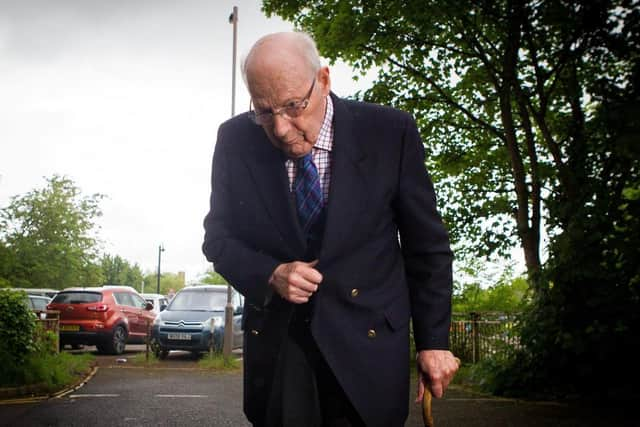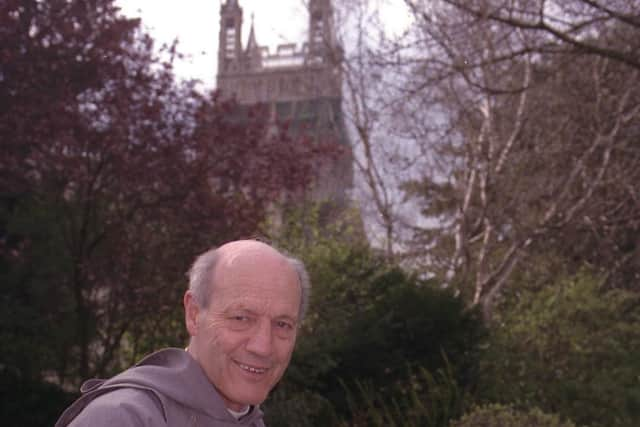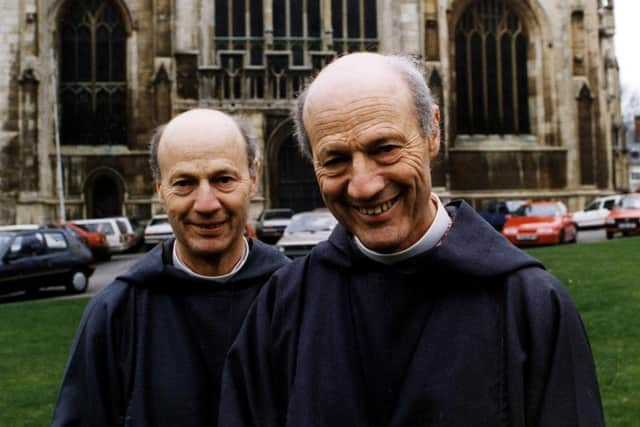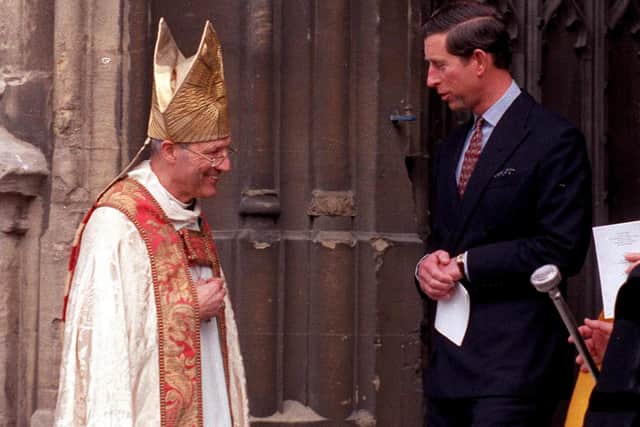Sex offender and former Bishop of Lewes was depressed, inquest hears
and live on Freeview channel 276
Mr Ball, the suffragan Bishop of Lewes from 1977 to 1992, and later the diocesan Bishop of Gloucester from 1992 to 1993, was 87 when he fell while trying to climb the stairs to his bedroom and fractured multiple ribs on June 20, this year.
An inquest on Wednesday (November 27), heard how he had also suffered a fall at home a week previously on June 13, and already had rib fractures from that occasion.
Advertisement
Hide AdAdvertisement
Hide AdMr Ball was sentenced to 32 months in jail in 2015, after admitting the abuse of 18 young men over 15 years .


Further charges of indecently assault were allowed to lie on file and he was released on licence in February 2017.
Mr Ball’s twin brother, Michael, said in a statement at the inquest that Peter should not have been at home when he had the fall that led to his death on June 20, having been discharged from hospital earlier that day.
He died at Musgrove Park Hospital in Taunton, Somerset, at around 7.30am on June 21, after being readmitted at 3am.
Advertisement
Hide AdAdvertisement
Hide AdCoroner Tony Williams recorded his death as accidental, concluding he had died from respiratory failures and multiple rib fractures following a fall. He also noted Ball’s history of ephysema and eschemic heart disease.


In a statement, his brother, Michael, said that in his final few months the retired bishop had become ‘weaker and weaker’, until he was eventually almost unable to walk or even stand.
He said he had also suffered spells of depression following a hip replacement in the early 2000s, and that this became worse in his last few years.
Michael said he believed that his brother’s health problems began after he retired as Bishop of Gloucester in 1993, and the family bought him a bungalow 200 yards from Michael’s coach house in Langport, Somerset.
Advertisement
Hide AdAdvertisement
Hide Ad“The shock of all that probably started a downward turn in his health,” he told the inquest.


The inquest heard that Ball was hospitalised twice between 2015 and 2017 with chest complaints and a kidney complaint.
Orthopaedic consultant Emily Mounsey, at Musgrove Park Hospital, said in a statement that Ball was admitted to the hospital on June 4, following a sudden onset of shortness of breath.
He was started on treatment doses of blood thinners, and discharged on June 12, after being deemed medically fit.
Advertisement
Hide AdAdvertisement
Hide AdBut he was readmitted the next day following the first of his two falls, in which he suffered bilateral rib fractures and a surge of emphysema, as well as a fractured left collarbone.


He was once again given blood thinners, and was discharged on a treatment dose on June 20, with oxygen and equipment to be cared for at home, as he insisted he wanted to die at home.
A post-mortem examination have his cause of death as respiratory failure, secondary to multiple rib fractures following a fall.
The post-mortem also identified emphysema and eschemic heart disease.
Mr Ball was a friend of Prince Charles and the most senior CofE figure to be convicted of child abuse.